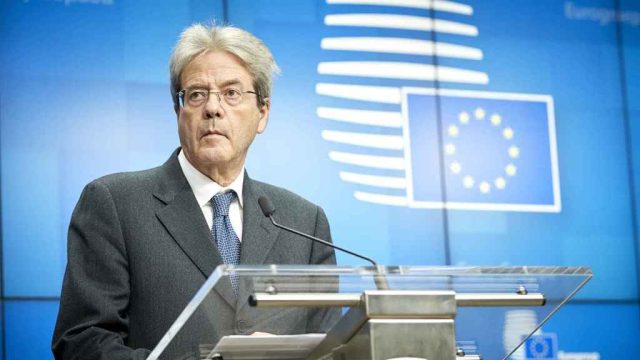
In its first report on the Recovery and Resilience Facility (RRF) of 2022, the European Court of Auditors identified significant gaps in Spain’s national plan, drawn up by Pedro Sánchez’s socialist-communist government. Despite being aware of these gaps, on 31 March, the European Commission decided to issue a third disbursement.
This amounted to handing over EUR 6 000 000 000 of public money – coming from the Member States themselves, more specifically from the pockets of their nationals – without addressing the issues identified by the EU’s audit authority.
On 27 April 2023, ECR Member of the European Parliament Jorge Buxadé asked the Commission whether it would recommend the Spanish government to invest in the electricity network, given that the audit found no such investment in Spain’s plan.
Initially, Commissioner Paolo Gentiloni answered that the Spanish Recovery and Resilience Plan included a set of reforms and investments on electricity infrastructure, smart grids and deployment of flexibility and storage. In terms of investments, the Plan would support the digitisation of the electricity network and the deployment of energy storage to increase the flexibility of the electricity system. The relevant milestones and targets were attached to the sixth and eighth payment requests.
However, MEP Buxadé followed up with an additional question on 18 July, as Mr. Gentiloni’s original answer could not be taken very seriously: In fact, he had simply referred to the Plan information of 30 April 2021, which was previous to the Court of Auditors’ report!
In his subsequent reply, the Italian Commissioner made two astounding and contradictory statements. As if to excuse himself for not controlling the use of taxpayers’ money, he pretended that the “RRF regulation does not mandate the Commission to demand that Member States prioritise specific reforms or investments”. Yet Article 24 of the RRF regulation allows the Commission to suspend and even to terminate the agreement with a Member State if milestones and targets are not fulfilled.
Recognising that such avoidance of responsibility convinces nobody, the socialist Commissioner went on to explain that Spain’s revised Plan includes an investment in new electricity network infrastructures. Indeed, component C31.I4 of the plan revision aims at supporting the development of the Spanish electricity transmission network, with an total investment of EUR 931, to be completed by 31 August 2026. That amounts to 9% of the corresponding seventh instalment that will be disbursed by the Commission in favour of Spain.
MEP Buxadé further recalled that the regional management of research and innovation policies in Spain was chaotic, as the EU auditors pointed out that those policies are not properly coordinated between the multiple layers of the current administration. After initially avoiding the question once more, the Commissioner considered that the amendment of Law 14/2011 improves coordination among different levels of government of science, research and innovation policies, and enhances the governance and coordination of the Spanish Science Technology and Innovation System.
Finally, the VOX politician stressed the necessary investments to be made in Spain’s primary health care, also missing from the socialist-communist plan, as assessed by the EU auditors. Here, the socialist Commissioner behaved adamantly: because recurring staff and operating expenditure is not eligible under the RRF, it would need to be funded by the national budget.
Nevertheless, that is not what the Court of Auditors demands; according to such Union authority, the Spanish plan should incorporate investments -not recurring staff and operating expenditure- in the primary health care. The evident conclusion is that neither socialists, either at national or EU level, are very much interested in investment in primary health care in Spain, while VOX and ECR are.



 Subscribe
Subscribe